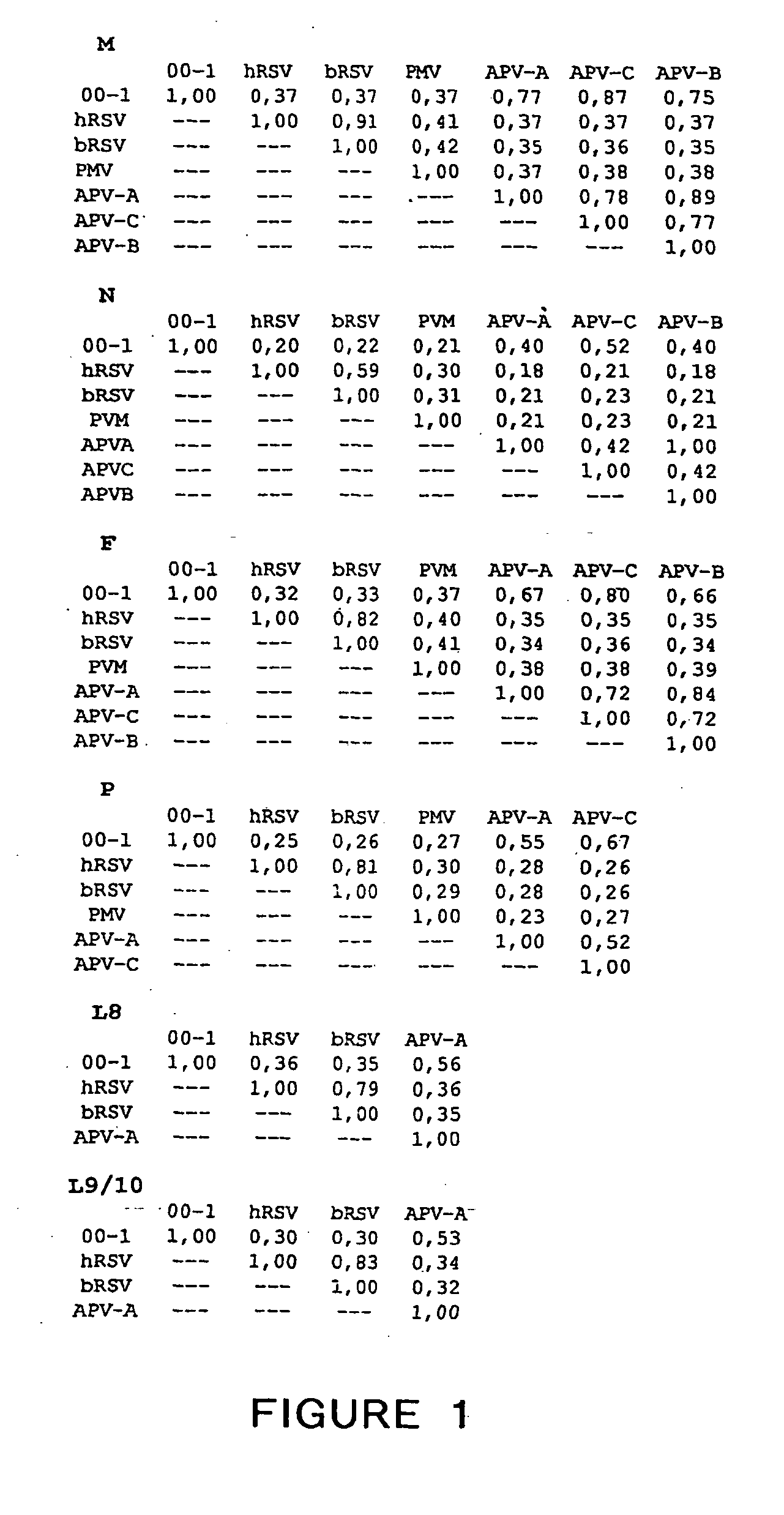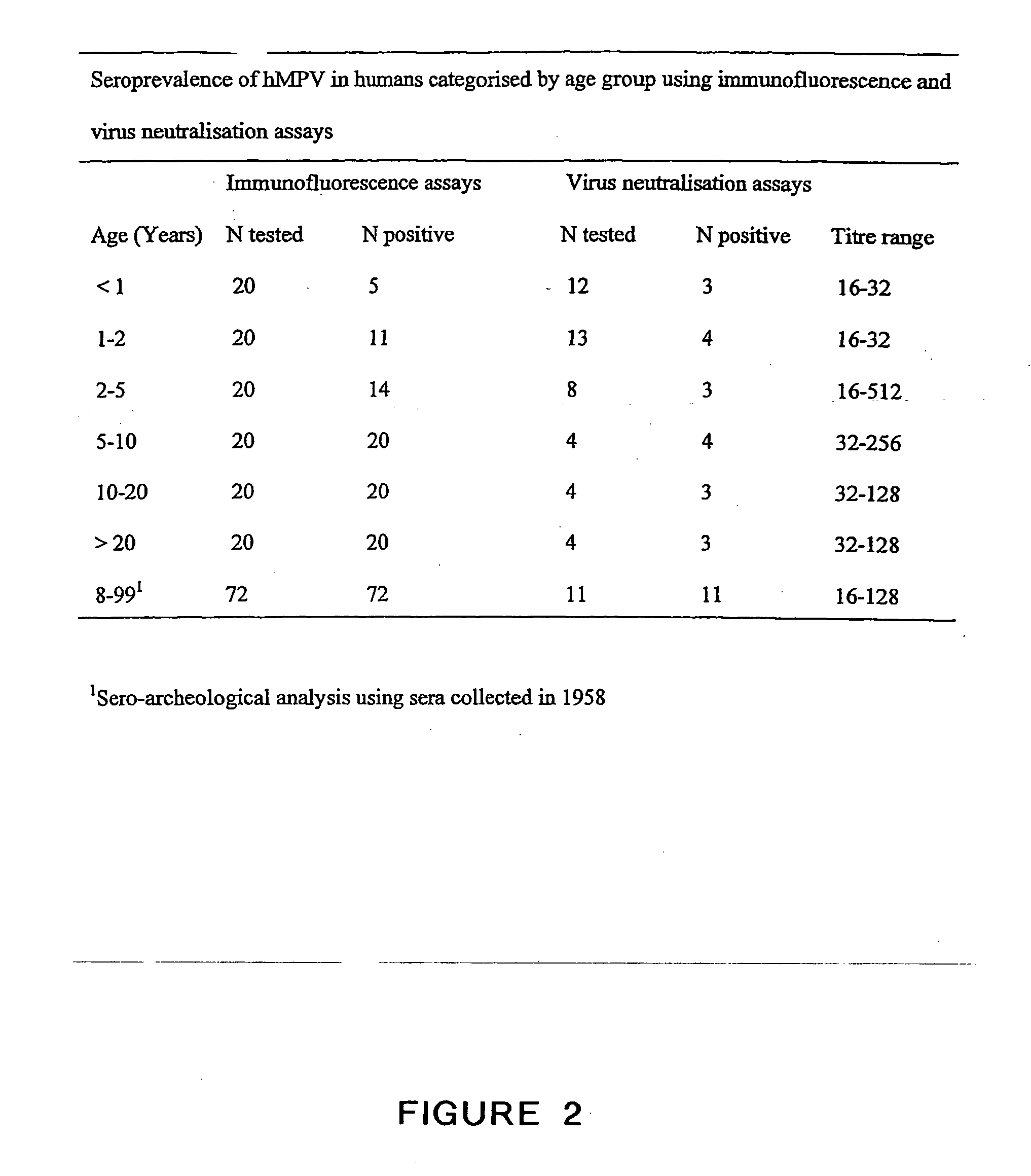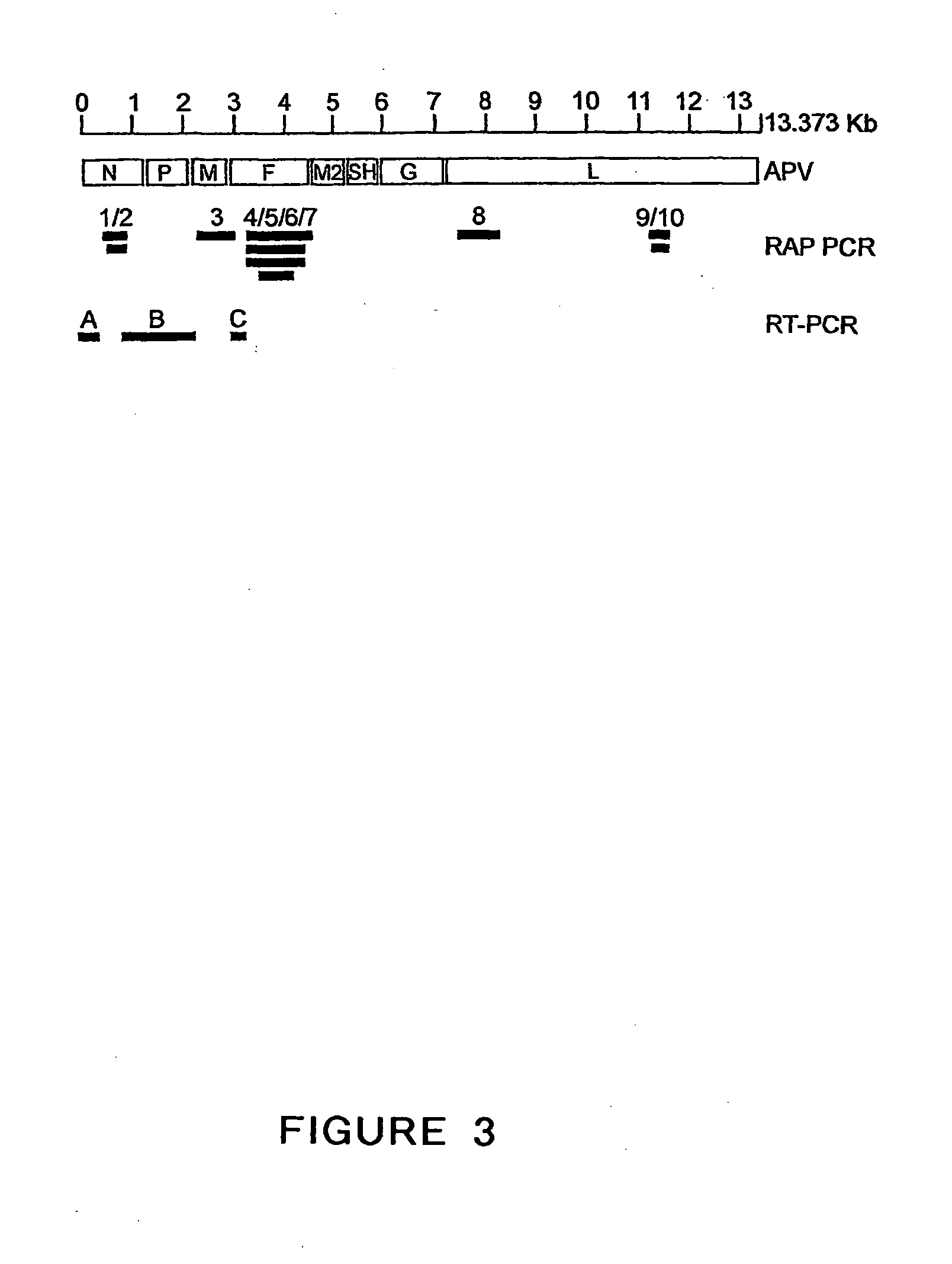Metapneumovirus strains and their use in vaccine formulations and as vectors for expression of antigenic sequences and methods for propagating virus
- Summary
- Abstract
- Description
- Claims
- Application Information
AI Technical Summary
Benefits of technology
Problems solved by technology
Method used
Image
Examples
example 1
6.1 EXAMPLE 1
Specimen Collection, Virus Isolation, Virus Characterization
Samples of nasopharyngeal aspirates were obtained from hosts to assay for the presence of viruses, and also to characterize those identified. Nasopharyngeal aspirates were collected from children suffering from respiratory tract infection (RTI). In order to determine the identity of the cause of illness, all nasopharyngeal aspirates were tested by direct immmunofluorescence assays (DIF) (See method in Example 9), using fluorescence labeled antibodies against influenza virus types A and B, hRSV, and human parainfluenza virus (hPIV) types 1, 2, and 3. Viruses were also isolated from nasopharyngeal aspirates using rapid shell vial techniques, (Rothbarth et. al., 1999, J of Virol. Methods 78:163-169) on various cell lines, including VERO cells, tertiary cynomolgous monkey kidney (tMK) cells, human endothelial lung (HEL) cells and marbin dock kidney (MDCK) cells. Samples showing cytopathic effects (CPE) after two ...
example 2
6.2 EXAMPLE 2
Seroprevalence in the Human Population
To study the seroprevalence of this virus in the human population, sera from humans in different age categories were analyzed by indirect IFA using tMK cells infected with one of the unidentified virus isolates. Studies revealed that antibodies to the virus could be detected in 25% of the children between six and twelve months. Furthermore, by the age of five, nearly 100% of the children were seropositive. In total, 56 sera samples examined by indirect IFA and by VN assay. For 51 of the samples or 91%, the results of the VN assay, i.e., a titer greater than 8, coincided with the results obtained with indirect IFA, i.e., a titer greater than 32. Four samples that were found to be positive by IFA, were negative by the VN assay, i.e., titer less than 8, whereas one serum sample was negative by IFA, i.e., titer less than 32, and was positive by the VN test, i.e., a titer of 16 (FIG. 2).
IFA conducted on 72 sera samples taken from hum...
example 3
6.3 EXAMPLE 3
Genomic Sequence of hMPV Isolate 00-1
In order to obtain sequence information for the unknown virus isolates, a random PCR amplification strategy known as RAP-PCR (Welsh et. al., 1992, NAR 20:4965-4970) (See Example 21). In short, tMK cells were infected with one of the virus isolates (isolate 00-1) as well as with hPIV-1 that served as a positive control. After both cultures displayed similar levels of CPE, virus in the culture supernatants was purified on continuous 20-60% sucrose gradients. The gradient fractions were inspected for virus-like particles by EM, and RNA was isolated from the fraction that contained approximately 50% sucrose, in which nucleocapsids were observed. Equivalent amounts of RNA isolated from both virus fractions were used for RAP-PCR, after which samples were run side by side on a 3% NuSieve agarose gel. Twenty differentially displayed bands specific for the unidentified virus were subsequently purified from the gel, cloned in plasmid pCR2.1 ...
PUM
| Property | Measurement | Unit |
|---|---|---|
| Fraction | aaaaa | aaaaa |
| Fraction | aaaaa | aaaaa |
| Fraction | aaaaa | aaaaa |
Abstract
Description
Claims
Application Information
 Login to View More
Login to View More - R&D
- Intellectual Property
- Life Sciences
- Materials
- Tech Scout
- Unparalleled Data Quality
- Higher Quality Content
- 60% Fewer Hallucinations
Browse by: Latest US Patents, China's latest patents, Technical Efficacy Thesaurus, Application Domain, Technology Topic, Popular Technical Reports.
© 2025 PatSnap. All rights reserved.Legal|Privacy policy|Modern Slavery Act Transparency Statement|Sitemap|About US| Contact US: help@patsnap.com



